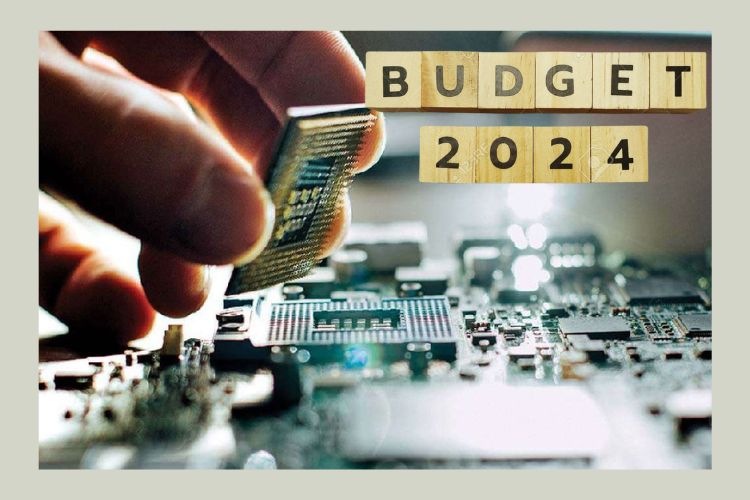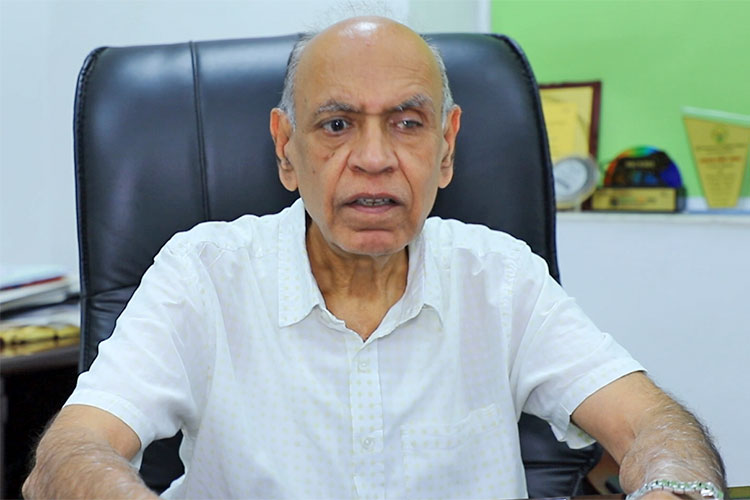
The visionary step is the allocated Rs 1 Lac Crore amount for innovation and research will help in witnessing new ventures, and top-notch technologies in deep tech areas, specially components research, electronics, and semiconductors
Ahead of the Lok Sabha polls, union Finance Minister Nirmala Sitharaman presented the interim budget 2024 in the parliament with deep focus on India’s digital growth, semiconductor industry, automobiles, and electronics manufacturing. This interim budget has cumulatively sanctioned Rs 1,43,337.88 Cr to the Ministry of Electronics and Information Technology (MeitY), the Ministry of Information and Broadcasting (MIB), the Department of Telecommunications (DoT), and Ministry of Home Affairs (MHA). Now, ahead of the budget, experts in the industry speculated that the FAME III scheme will be announced to boost the EV ecosystem in the country, but instead the finance minister slashed the overall allocation of the scheme by 44 percent. In this interim budget, the entire expenditure has been decreased to Rs 2671.33 crores for financial year 2024-25 from Rs 4807.40 in current financial year (FY24).

Speaking of the budget on EV growth, Rohit Pandit, Managing Director and Chairman, Shuzlan Energy told Circuit Digest exclusively, "As the founder of an electric vehicle startup, I am incredibly encouraged by the government's commitment to expand and strengthen the e-vehicle ecosystem. The support for manufacturing and charging infrastructure, along with the encouragement for greater adoption of e-buses for public transport through a payment security mechanism, signals a significant step towards a sustainable and green future. With the growing number of startups in the electric vehicle industry, this commitment will undoubtedly spur our Financial Minister's vision.We are optimistic about the opportunities that lie ahead and are committed to contributing to the EV revolution in India. The budget speaks volumes – a clear reflection of the concrete effects these initiatives will have on the startup ecosystem in the electric vehicle industry."

Pratik Kamdar, CEO & Co-Founder, Neuron Energy said, "The Interim Budget focused on key sectors and one of the promising ones is Electric Vehicles (EV). The initiatives will enhance and fortify the EV ecosystem by bolstering manufacturing and charging infrastructure. Additionally, the encouragement of greater adoption of e-buses for public transport networks through payment security mechanisms is a notable benefit. These investments not only pave the way for increased EV sales and adoption but also open doors for burgeoning job opportunities and entrepreneurial ventures within the sector. We look forward to the July budget where the focus will be on the Faster Adoption and Manufacturing of Hybrid and Electric Vehicles (FAME II) scheme and the much-anticipated FAME III scheme."
However, there are some optimistic scenarios for the EV manufacturers also. While speaking in her budget speech, Finance Minister Nirmala Sitharaman said, “Our Government will expand and strengthen the e-vehicle ecosystem by supporting manufacturing and charging infrastructure. Greater adoption of e-buses for public transport networks will be encouraged through payment security mechanisms.”
Semiconductors is another key area where the government has been undertaking various efforts to grow the ecosystem. Apart from the incentive scheme of rs 76,000 crore unleashed in December 2021, the finance minister allocated Rs 3,000 crore in the budget session of FY 2023-24 and this year the amount has been increased to Rs 6,903 Crore. This move is an escalation of more than 200 percent in regards to semiconductor and display manufacturing. The point to be noted is that out of the total Rs 6,903 Crore, the major chunk of the amount worth Rs 4,203 Crore will be applied as incentives for ATMP units, which will provide a huge advantage to the newly announced and new ventures by companies such as Micron, Foxconn-HCL joint venture, and Tata Group, etc. Speaking of semiconductor fabs, Rs 1500 Crore has been sanctioned, which will help in the growth of sensor manufacturing and compound semiconductors, feels experts. Additionally, Rs 900 Crore will assist in the development of a new semiconductor lab in Mohali and Rs 200 Crore for design related incentives to augment more designs and IPR development in the country.

Amrit Manwani, CMD, Sahasra Group, said “The allocation of incentives totaling Rs 4,203 crore for the establishment of assembly, test, and packaging plants is a strategic move and will encourage more investments in this important segment of the semiconductor value chain, bolstering domestic manufacturing capabilities”.
According to the industry experts, the investments announced in the budget will provide a huge assistance to the semiconductor mission and the PLI scheme for IT hardware and mobile. The government feels that these moves will boost innovation, escalate employment, and help the country to compete in the global electronics market. In terms of mobile manufacturing, the PLI scheme has been increased to Rs Rs 6,125 crore, up from Rs 4,489 crore in the last year. But for the IT hardware sector, the scheme has witnessed an allocation of only Rs 75 Crore, which is speculated to be increased as the manufacturing of these goods perks-up. For electronics hardware manufacturing, Rs 750 Crore has been allocated in the budget specifically as an interim amount.

Sushil Virmani, Managing Director, Best Power Equipments (BPE) said, "As we navigate the landscape of Union Budget 2024, it's crucial for the government to accentuate and foster an environment for both local and global investments in semiconductor technology, AI, and digital platforms. This strategic focus aligns with our industry's evolution. Simultaneously, we recognize the imperative to integrate these cutting-edge technologies into our educational curriculum, ensuring a skilled workforce. This synergy is pivotal for propelling our nation towards the coveted 7 trillion economy by 2030."

Manoj Nair, Head of India GDC, Fujitsu India said, "As the demand for tech talent surges, the Government’s Skill India Mission has played a pivotal role in stemming the talent gap in the IT industry. With 1.4 crore youth upskilled and reskilled, the announcement of higher learning institutions including IITs and IIMs will help India address the AI skill crunch and bridge the gap effectively. Additionally, the Government’s corpus of Rs 1 lakh crore with a 50-year interest-free loan will encourage the private sector to scale up research and innovation significantly in sunrise domains. This will be a big boost for tech-savvy youth and help the Nation strengthen capabilities in the deep tech sector. The government’s continued focus on the EV ecosystem is indeed a pragmatic step forward and will continue to help India succeed in achieving its long-term decarbonization objectives."

